“My breasts feel like cancerous tumors and my voice feels like the result of some horrible accident. I don’t feel like I grew up with these things, and I feel like the ‘feminine’ things about me are all viruses and disfigurements. I felt dissociated for a good 3 years in middle school just because puberty was doing something to me that I didn’t identify with at all.”
This is an excerpt of a description of Gender Dysphoria by senior Alexander Chrimes.
Gender Dysphoria (or “dysphoria”, for short) is a medical condition defined as the distress that comes with not identifying with the gender one was assigned with at birth. People who have Gender Dysphoria constantly suffer from things like anxiety, depression, low self-esteem, dissociation and suicidal ideations due to their condition.
And transgender people like Chrimes have to endure it every single day.
So, Chrimes, as well as juniors Noah Tallent and Max Bolle, agreed to be interviewed by The Cougar Press so that the public may be educated on what life is like as a transgender student. All three of these men are transgender males (meaning that they are biologically female, but identify as male) and have been vocal about it for a few years each and each was happy to share their experience.
Right off the bat, Chrimes, Tallent and Bolle agreed that most people on campus don’t listen to or understand them when it comes to being transgender.
On this, Tallent stated, “The main thing that comes to my brain is being misgendered, because [VHS is full of a] bunch of teenagers so no one really [cares about our pronouns]. And the teachers- like, I get they’re trying- they have a lot of students, but I feel like my teachers will call me Noah, yet none of them actually remember that my pronouns are he/him. Like, none of them.”
When a transgender person is “misgendered” that means that someone has referred to them by incorrect pronouns, whether it was by accident or on purpose. For example, accidentally referring to a transgender male by the pronoun “her” is considered misgendering. But, in most cases, a transgender person will forgive you if you apologize for the mistake after being informed of the person’s proper pronouns, according to Chrimes, Bolle and Tallent.
However, on campus, Bolle feels like people will have one of two reactions when they are corrected.
“I feel like if I ever try and correct someone [when they get my pronouns wrong], either they’re [going to] be like, ‘cool, alright’ and then [use my correct pronouns] or be like ‘what do you mean?’. And then it’s gonna get into this whole, weird-ass debate and I’m gonna be like, ‘Hey maybe we should treat transgender people like humans’ and they’ll be like ‘Are you sure?’” explained Bolle.
Tallent, on the other hand, tries not to “out” himself (meaning inform people that he’s transgender outright) in order to avoid conflict.
“I’m not gonna be like, to every person that is in my class, ‘Oh, actually, those aren’t my pronouns,’” said Tallent. “[But if] there’s a situation where someone’s like, talking about transgender people, I’ll be like, ‘Yeah, that’s me.’”
Granted, they do feel physically safe at school, except for Chrimes, who stated, “I don’t feel like my life is threatened on campus because I actively avoid people who I know would threaten my life.”
But Chrimes, Tallent and Bolle do feel like most VHS staff members don’t understand what it means to be transgender, or even make an effort to understand.
“People are very calm about it, or at least the people I’ve talked to,” stated Chrimes. “They’re just kind of like ‘alright,’ but you can tell they don’t really get it.”
Chrimes added that he feels like, “there’s possibility of confrontation on campus from like certain staff members” refusing to name any names, for fear of said confrontation.
Chrimes, Tallent and Bolle did have some suggestions for VUSD staff on how to not make them feel “depressed and worthless and like garbage.”
“Don’t deny the complete existence of us,” said Bolle. “Uh, actually maybe give us some places to pee. That would be super cool.”
Bolle is referring to the fact that every room that is labeled as an “All-Gender Bathroom” (besides the one in the Nurse’s Office) is a locked restroom that is reserved for teachers or not even a restroom at all. According to him, All-Gender Bathrooms are the only public restrooms that most transgender people can feel even somewhat safe in.
Chrimes followed by stating that many of his teachers and teachers of his transgender friends will continually refer to them by their “deadname,” or the name they were given at birth, after they have been told about their trans students’ chosen names multiple times. All three agreed that getting referred to by one’s “deadname” makes most transgender people “feel like shit for the rest of the day” because it can cause minimal to overwhelming Gender Dysphoria .
“[People should] educate the staff and administration a little bit more on not just like transgender issues but on [the entire LGBTQ community],” stated Tallent, “because a lot of times, they’ll say some insensitive thing, and I know they don’t know it’s insensitive. It’s roughs sometimes.”
According to Chrimes, Tallent and Bolle, sometimes staff won’t offer aid when people are being blatantly discriminated against. Chrimes recalled a story told to him by his friend, who The Cougar Press is keeping anonymous for safety reasons. Chrimes’ friend was allegedly repeatedly called a “fag” and a “faggot” by a group of boys that sat next to her in one of her classes. When Chrimes’ friend asked that classes’ teacher to move her seat, the teacher declined and she continued to be harassed for the rest of the year.
Bolle followed with another anecdote: “[During my] sophomore year, there was like 6 times when I told one of my teachers my pronouns and he just never used them. Not one time, so it was not very fun. So maybe, teach them to not do that.”
Even though life as a transgender student can be grim, according to these three, Tallent stated that it isn’t all bad.
“I think the biggest perk has been, you guys! My frickin’ friends! I feel like if I wasn’t [on the] LGBTQ [spectrum] at all, I wouldn’t have become so attached to you guys!” said Tallent to Chrimes and Bolle, who agreed since they’ve all hung out together every day for most of high school. Tallent continued, stating that the LGBTQ community has a big emphasis on “community” and is full of many loving and accepting people.
Although they have the comfort and protection of their friends on campus, outside of a school setting, Chrimes, Tallent and Bolle have a “fear of confrontation almost all the time.”
Even though Bolle has been prescribed weekly injections of testosterone, he can’t even use a public restroom without feeling scared or nervous.
“Either, I go into the women’s bathroom and get accused of being a creep which is not good, because I don’t want people to feel unsafe,” stated Bolle, “[or I] go into the men’s bathroom, get assaulted or, you know, beat up or whatever. Or, this is rare, use a bathroom, pee, and leave and everything [goes] fine.”
Tallent stated that sometimes he doesn’t even feel safe at LGBTQ centric events: “At things like pride functions, where I’m loud about [my transgender pride]. Sometimes, in the back of my head, I’ll be like, ‘someone could totally come and shoot us all and then we’re just dead.’”
Neither Chrimes, Tallent nor Bolle have ever been physically assaulted due to them being transgender. But since 50 percent transgender individuals are sexually assaulted in their lifetime and 78 percent of transgender students report “significant abuse at school,” according to the Office for Victims of Crime, they might be justified in their fears.
According to the three, the worst part of being transgender is the Gender Dysphoria that comes with it. Bolle stated that it dysphoria is very “exhausting” and that it was hard to describe. Tallent and Chrimes agreed, but were able to create a more detailed picture of how painful their dysphoria really is.
Tallent described dysphoria by saying, “I feel a kind of disconnect with my body. [My body] doesn’t feel or look like me which is super hard to deal with because, there this certain way [I] wanna look, which is literally impossible for me.”
Chrimes went into even more detail stating: “My breasts feel like cancerous tumors and my voice feels like the result of some horrible accident. I don’t feel like I grew up with these things, and I feel like the ‘feminine’ things about me are all viruses and disfigurements. [It’s as if] your body is betraying you as you get older, but not by getting old or getting tired, just by maturing into something that you hate being. I felt dissociated for a good 3 years in middle school just because puberty was doing something to me that I didn’t identify with at all. A huge gap split between my mind and my physical body. I just see my body as a rental vehicle. It’s not mine.”
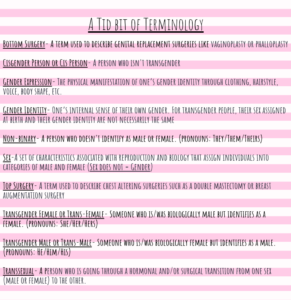







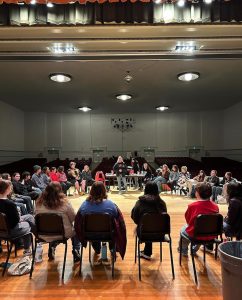

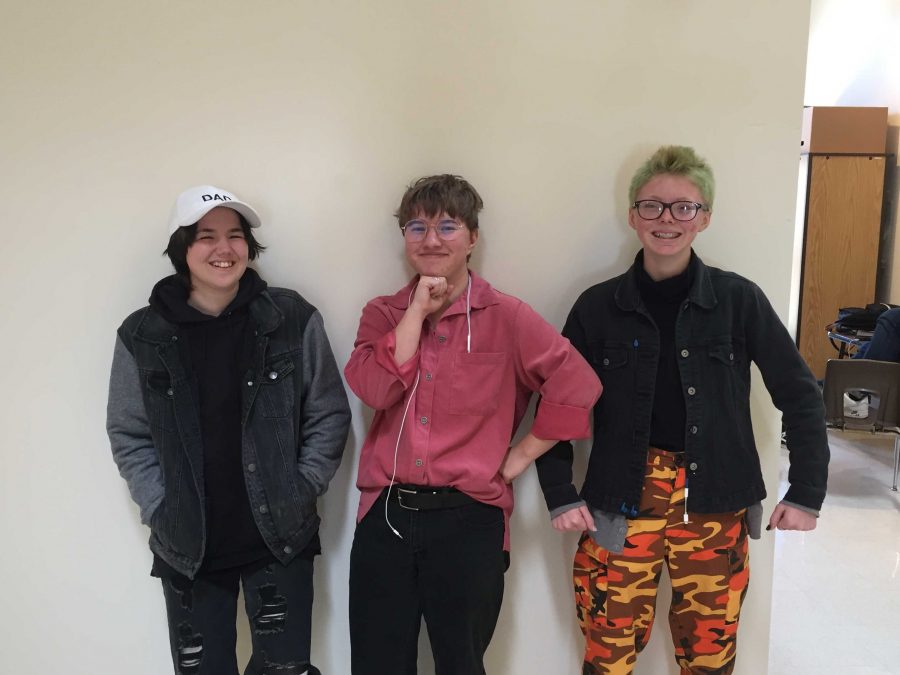

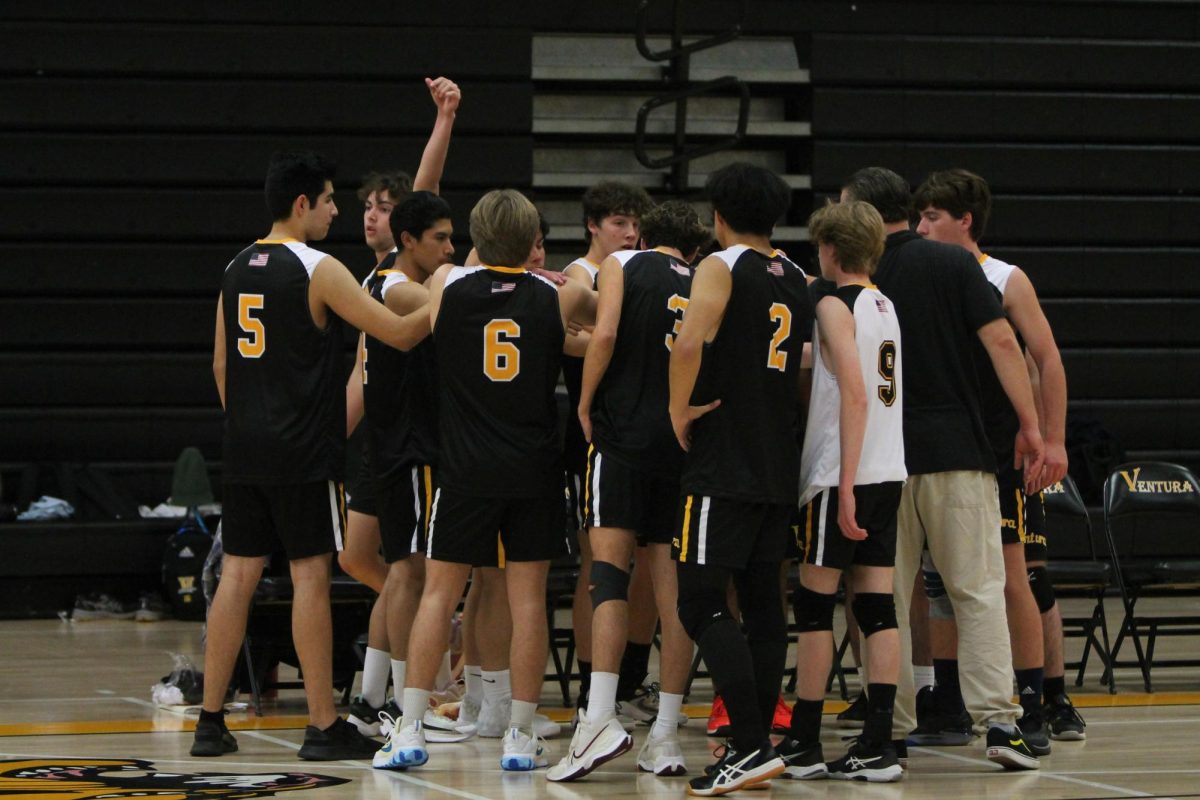
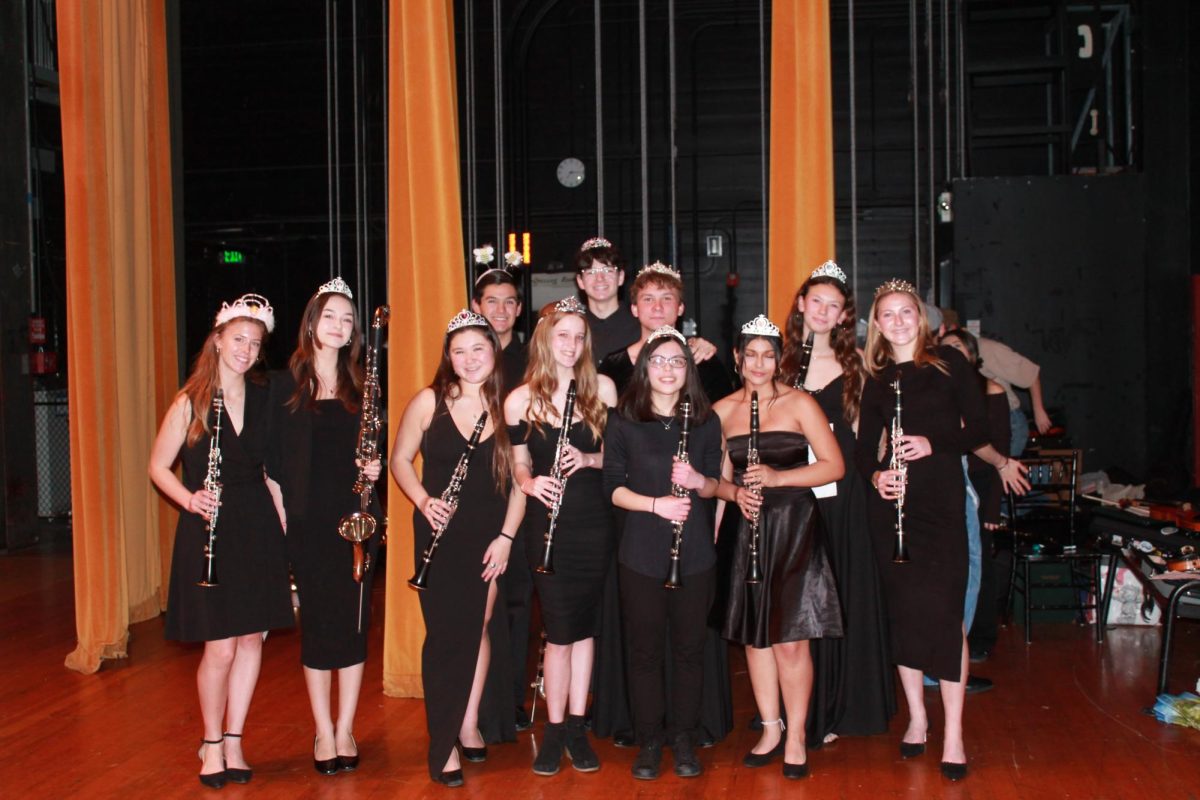
![[left to right] George Lopez, a campus supervisor at VHS, said, “I don’t have any plans, whatever comes up because plans never work, but I might go to Texas.” Damian De La Fuente ‘24 said, “I’m going to hang out with friends and perform at parties.” Viviana Rodriguez, a campus supervisor at VHS, said, “I’m going to see my family in Santa Barbara and do some deep cleaning.” Photo by: Meray Touma](https://thecougarpress.org/wp-content/uploads/2024/03/Photo-6-1-e1710961880419-900x1200.jpg)
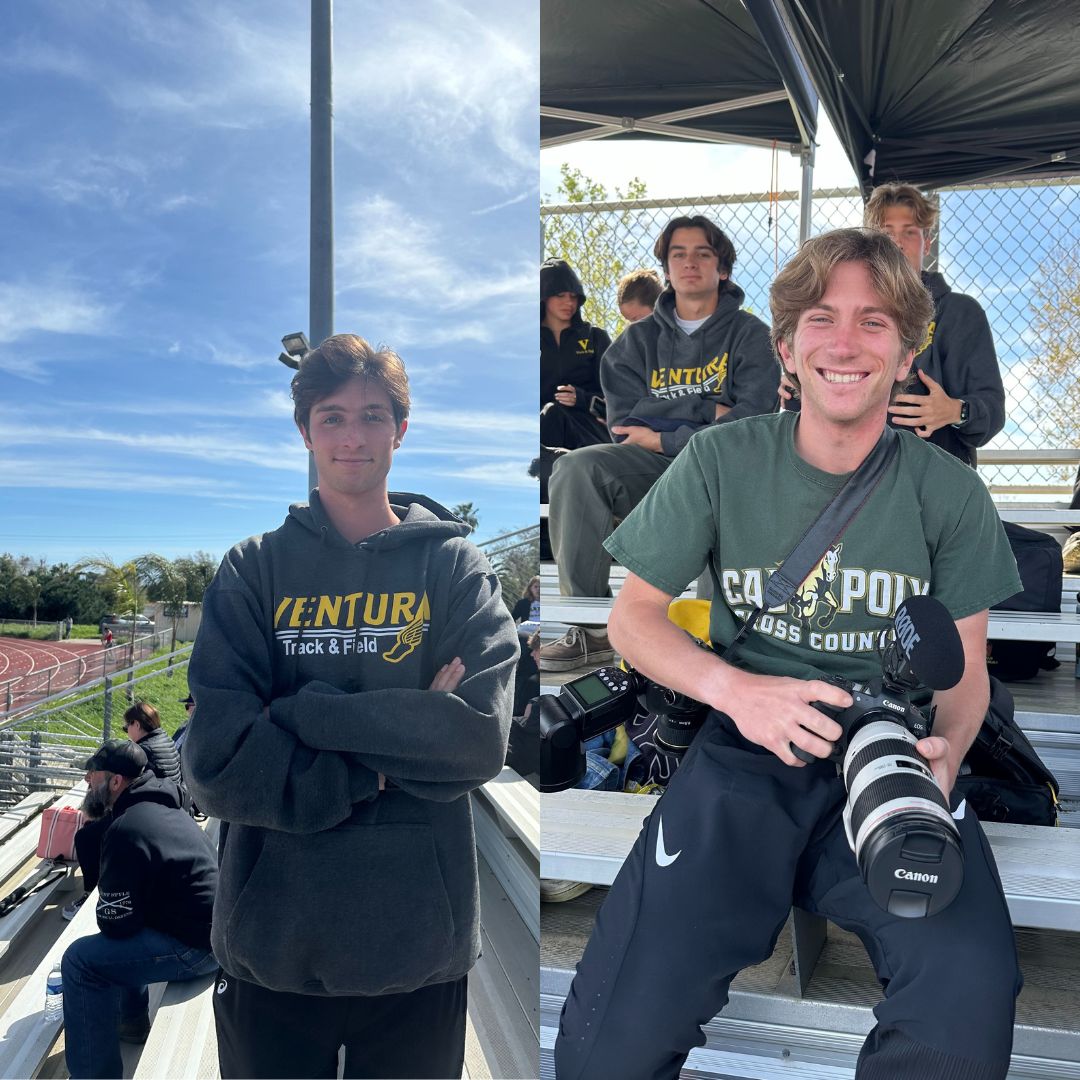


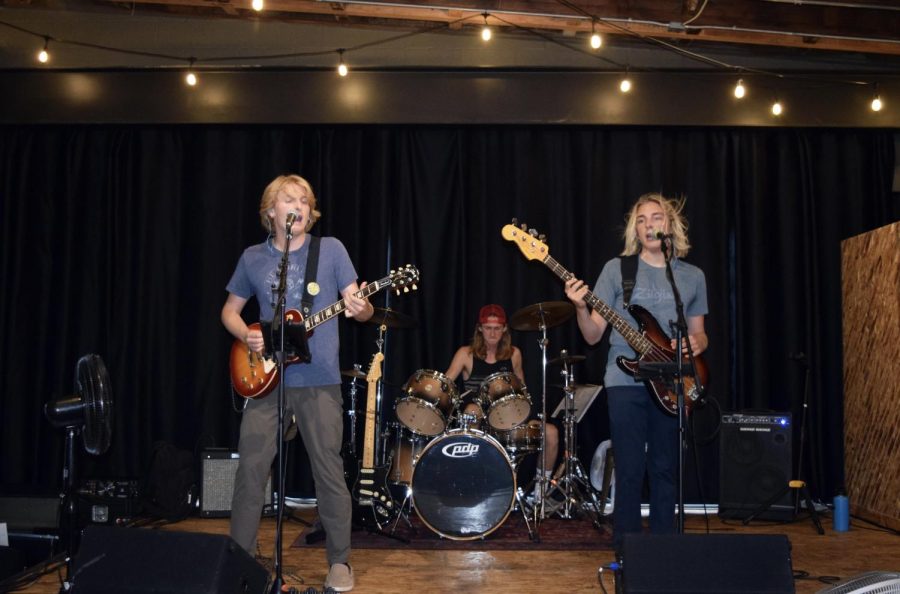

![Junior Tobias Raymond said, I started playing [football] in 8th grade and I was always a little nervous to play but I fell in love with it. I think I love football because of the team camaraderie. It’s really fun being around all of the guys on the team. Photo by: Alejandro Hernandez](https://thecougarpress.org/wp-content/uploads/2022/05/AH-Tobias-Raymond-5-2022-13-900x600.jpg)
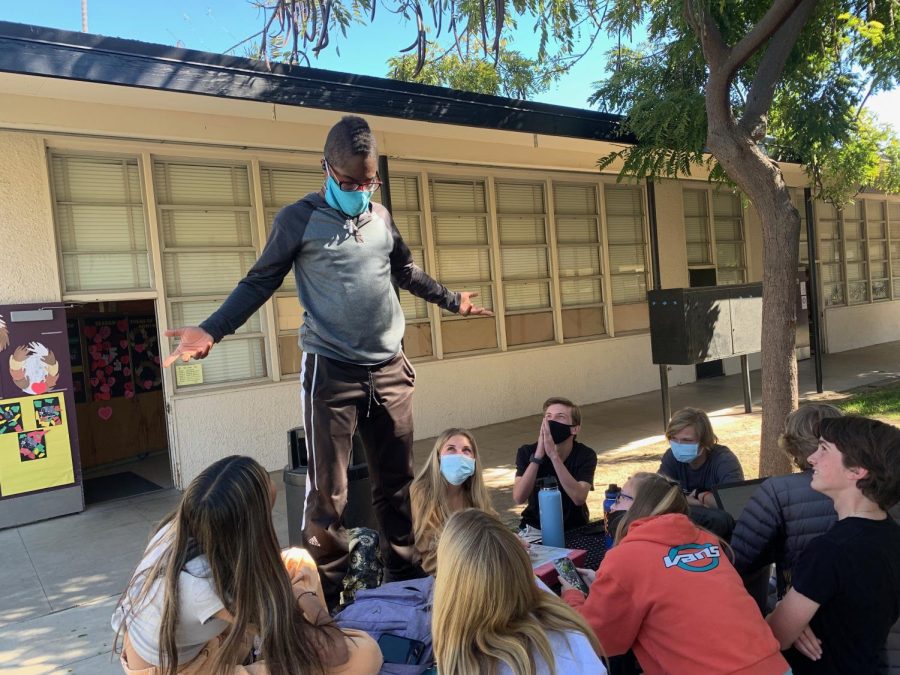
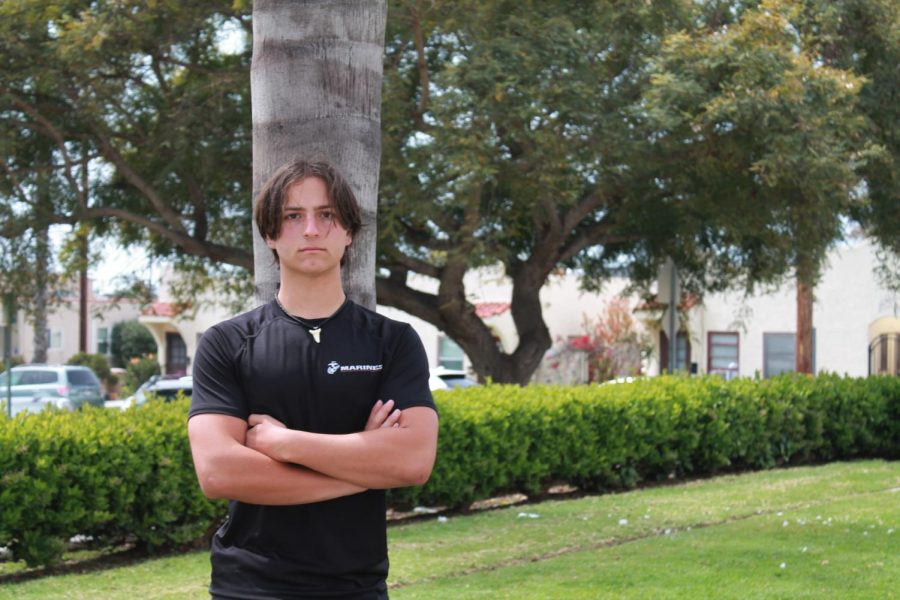
Jason • Mar 2, 2019 at 9:08 pm
Thank you Miles for writing the article, and to the students who openly talk and inform others of what they go through. Getting through life on the day-to-day is tough enough. These people are courageous.